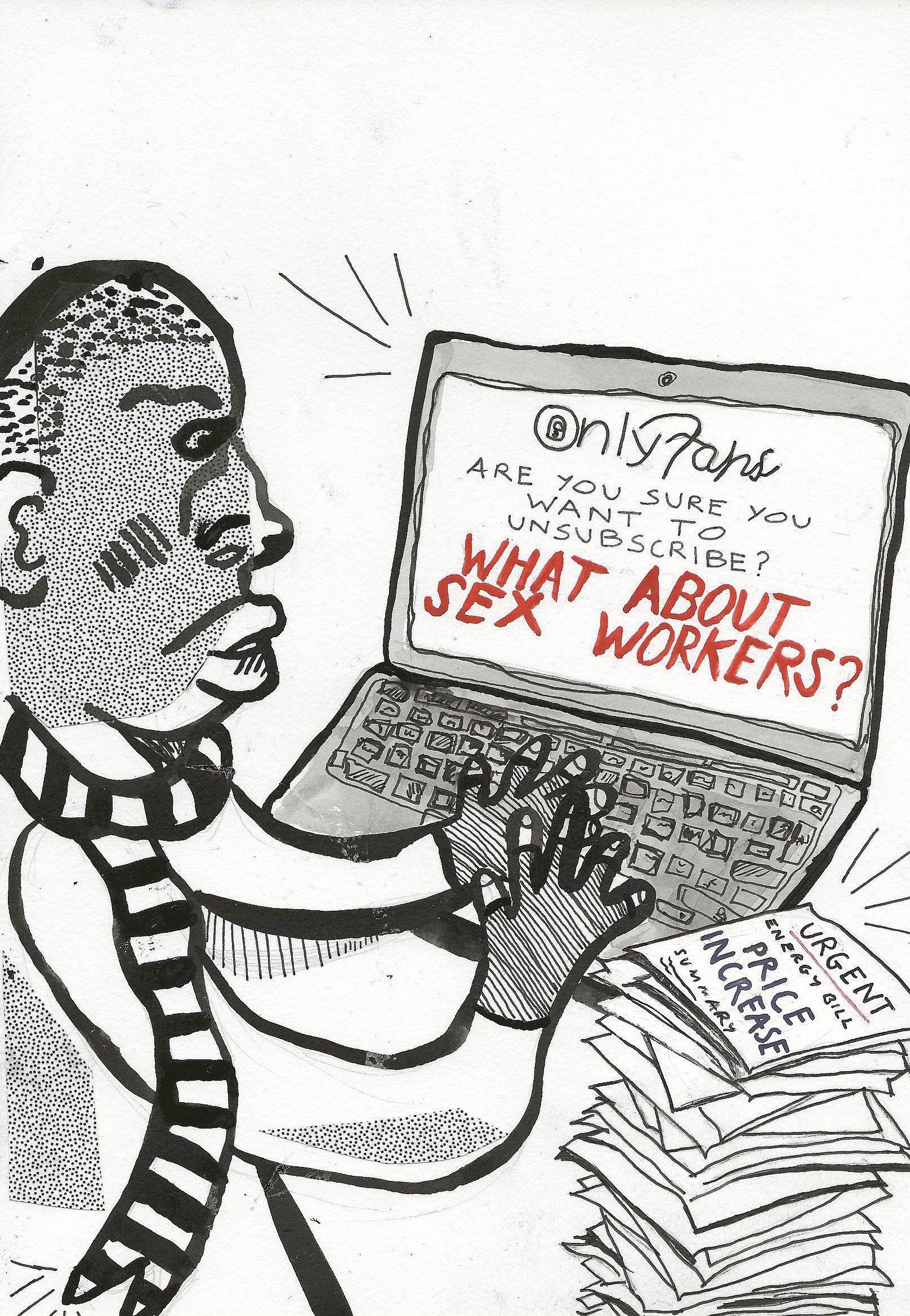Words: Casey Muchiri
Artwork: Lizzie Eidson she/her
Sex work is seen as one of the oldest trades in the world and has always been an integral part of our society. Due to technological advances, platforms such as OnlyFans allow many people to now undertake sex work from the comfort of their own homes, empowering some to become millionaires, a form of social mobility that a hostile political climate would never recognise. While this isn’t the case for the majority of sex workers, a modest increase in income can nonetheless change their lives for the better and prevent them from having to choose between heating and eating. This should be especially pertinent with a cost of living crisis currently squeezing our incomes. Such a crisis risks making sex work less viable.
Rising energy bills and food prices have drastically reduced the disposable income available to UK households. According to The Guardian, a fifth of households now have an average shortfall of £60 a week between what they earn and what they need to cover essentials such as bills and food. For those affected, with little to no money for extra spending, it is leisure activities which are then reduced. New clothes and holidays are obvious examples, but for some this will also include paying for sex work. People are now expected to prioritise merely surviving through winter, rather than fulfilling their personal needs. Whether you condemn or condone paying for sex work does not ultimately matter for sex workers affected by a lack of clientele. The question remains: how are they meant to survive the cost of living crisis?
The pandemic has already increased the number of sex workers in dangerous and violent situations. Women who had regular clients were forced to return to working on the streets due to lockdown restrictions. Even though the act of engaging in sex for money isn’t itself illegal in the UK, many of the activities surrounding it are, including soliciting in a public place or owning or managing a brothel. This means that sex workers already have to find a way to make a living without being prosecuted, including through online platforms like OnlyFans. But the cost of living crisis means people will lack the disposable income to spend on such platforms, and they will cancel their subscriptions.
Such a lack of disposable income will also result in more people using sex work as a way to make up for the shortfall. An influx of new sex workers may interrupt the business of already established sex workers, the result being that too many workers seek after too few clients. Additionally, rising energy bills may result in brothels closing down. These offer safety in numbers for sex workers, and the further increase in street prostitution during the winter will result in more sex workers having to work alone. Being forced to work in an unsafe environment, and lacking the ability to choose between clients, will only lead to more sex workers finding themselves in violent and dangerous situations.
Despite this, the government do not seem interested in protecting sex workers. Since they are seen as electorally expedient, political parties continue to choose to turn a blind eye. Societal change, including a recognition of sex work as work that can be empowering, is urgently needed because it is only if we change the narrative on sex work that our government will start to fulfil its duty to protect the vulnerable and ensure sex workers can survive this cost of living crisis. Until then, we must continue to fight for their rights, whether that is through proper trade union representation or the ability to choose their clients and work safely. If we start to treat sex workers with the dignity and respect they deserve, we can only hope that the government follows suit.

